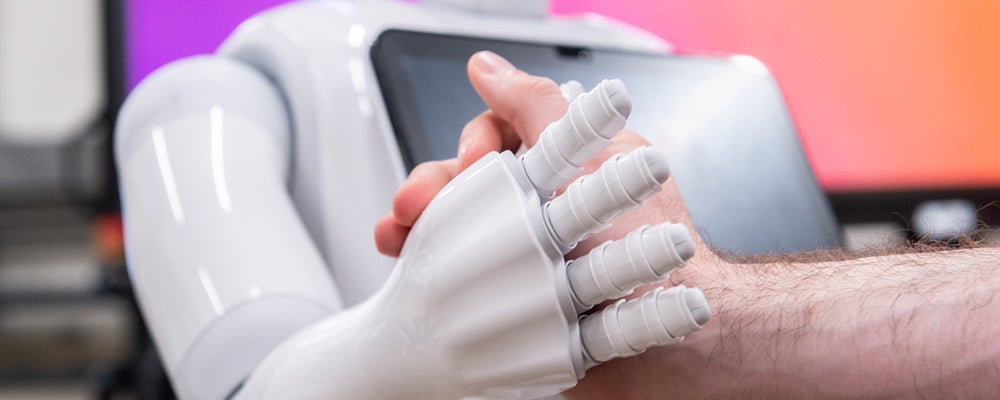
Research in the School of Humanities, Arts, and Social Sciences reflects our faculty’s uniquely interdisciplinary way of looking at the world. Funded research in HASS spans the investigation of phenomena from the very small scale to the very large scale, as well as the interconnections that occur in between.
RESEARCH TOPICS
Arts
Interdisciplinary research in the Arts Department includes projects like cognitive architecture that enable intelligent agents to reason and intuit, so that we can better understand how artists use these two cognitive abilities in order to create.
Cognitive Science
Cognitive Science researchers are investigating how perception shapes action and how vision guides the accomplishment of both simple and complex human tasks under varying circumstances and constraints. Other research investigates how we use background knowledge and context to understand language even when what is being said is ambiguous, novel, ungrammatical, and/or metaphorical.
Communication and Media
Communication and Media researchers are interested in media theory and practice. Faculty examine the representation and formation of ideas and identities in various media texts. They investigate how people communicate effectively and creatively across multiple platforms or how immersive technologies affect learning and play. Areas of research include cross-cultural communication, data visualization, graphic design, and embodied communication.
Economics
Economics researchers are employing new models to analyze the effects of various incentive-based carbon dioxide emissions regulations and exploring behavioral economics and the emerging field of neuroeconomics — the interrelationship between neuroscience and economic decision-making.
Games and Experiential Media
Games and Experiential Media researchers are working in interactive simulation, augmented and mixed reality experience design, virtual reality, contemporary social theory, game culture, embodied conversational agent (ECA), computational modeling of decision-making and emotion, and human-computer interaction (HCI).
Science and Technology Studies
Scholars in Science and Technology Studies (STS) are experts in the ethical, legal, and social dimensions of science, medicine, computing, and engineering. The STS Department at Rensselaer applies this expertise toward research and design for sustainable and equitable futures. Faculty and graduate students are engaged in research on diverse topics, including the opioid overdose epidemic, citizen science in environmental justice movements, the politics of large-scale research infrastructures, American history of race and medicine, the HIV epidemic in Turkey, cultures of research on neurological disorders, and community participation in nuclear waste siting decisions.
RESEARCH CENTERS
Center for Deep Listening — Deep listening, as developed by the late composer and pioneer Pauline Oliveros, explores the difference between the involuntary nature of hearing and the voluntary, selective nature of listening. The practice includes bodywork, sonic meditations, interactive performance, and listening to the sounds of daily life, nature, and one’s own thoughts, imagination, and dreams.
RESEARCH LABORATORIES
Adaptive Computational Cognition Laboratory (AdaCog) — Researchers in the AdaCog Laboratory study how the human brain can perform complex tasks in uncertain environments. This question is approached from an engineering perspective: How should one build a system that can perceive, remember, act, etc., according to rational principles, while subject to biological constraints on information processing capacity?
Cognitive Architecture Laboratory (CogArch) — The CogArch (Cognitive Architecture) lab focuses on research developing comprehensive models of human cognition, namely, computational cognitive architectures. Research is ongoing investigating interaction of implicit and explicit cognition, consciousness and computation, interaction of motivation, metacognition, and cognition, as well as cognitive social simulation. Domains that are of interest include: skill acquisition, reasoning, creative problem solving, motivation, personality, emotion, and moral judgment.
CogWorks Laboratory — Researchers in the CogWorks Laboratory conduct basic and applied research, uncovering the interplay of cognition, perception, and action in routine interactive behavior. Topics of research include integrated cognitive systems, computational cognitive modeling, cognitive engineering, and much more. The lab's approach includes traditional experimental paradigms as well as video games and other complex tasks, which are treated as experimental paradigms.
PandA Laboratory — PandA Laboratory researchers explore intelligence by studying the tight linkage between perception and action. Basic questions about visual perception, motor control, and coordination are addressed by investigating routine and skilled perceptual-motor tasks, with a specific focus on visually guided actions. Experimental research is conducted in real and virtual environments, and mathematical models are developed using tools from dynamical systems theory and artificial intelligence.
Rensselaer Artificial Intelligence and Reasoning Lab (RAIR) — RAIR Lab researchers work across a number of applied projects, as well as across many of the fundamental questions artificial intelligence raises (e.g., Are we machines ourselves? If so, what sort of machines?). Everything is to a high degree unified by the fact that the formalisms, tools, techniques, systems, etc., that underlie the lab’s research and development are invariably based on reasoning.